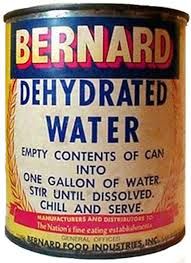Over the counter homeopathic remedies sold in the U.S. will now have to come with a warning that they are based on outdated theories ‘not accepted by most modern medical experts’ and that ‘there is no scientific evidence the product works.’
 Failure to do so will mean the makers of homeopathic remedies will risk running afoul of the US Federal Trade Commission (FTC).
Failure to do so will mean the makers of homeopathic remedies will risk running afoul of the US Federal Trade Commission (FTC).
The agency argues that unsupported health claims included in the marketing for some of these remedies are in breach of laws that prohibit deceptive advertising or labelling of over the counter drugs.
The body has released an enforcement policy statement clarifying that homeopathic drugs are not exempt from rules that apply to other health products when it comes to claims of efficacy and should not be treated differently. In order for any claims in adverts or on packaging not to be ‘misleading’ to consumers it should be clearly communicated that they are based on theories developed in the 1700s and that there is a lack of evidence to back them up, the statement says.
It adds that the FTC will ‘carefully scrutinise the net impression of [over the counter] homeopathic advertising or other marketing … to ensure that it adequately conveys the extremely limited nature of the health claim being asserted’.
Timothy Caulfield of the University of Alberta urges Canadians to follow the U.S. lead, which states homeopathic products – which are, to be absolutely clear, nothing more than water or sugar pills – “must be substantiated by competent and reliable scientific evidence” or the label must say “there is no scientific evidence that the product works.”
This is a ridiculously sensible move. Homeopathy, a practice meant to treat disease symptoms through non-existent doses of substances that (allegedly) produce similar symptoms, has become a multi-billion dollar industry, is one of many popular complementary and alternative medicine (CAM) products that have been thoroughly and consistently debunked.
 There is no credible evidence that homeopathy works for any health condition. More important, homeopathy is scientifically preposterous .
There is no credible evidence that homeopathy works for any health condition. More important, homeopathy is scientifically preposterous .
Bottom line: Homeopathy doesn’t work and there is no way it could work, at least beyond producing a placebo effect. It is pure quackery.
Due to Health Canada’s relatively lax regulations, many pharmacies sell homeopathic products that make claims of therapeutic benefit that would clearly infringe the new FTC policy.
Indeed, a recent study led by my colleague Ubaka Ogbogu found that a significant number of pharmacists recommend homeopathic remedies.
In addition, provincial governments have done much to facilitate the spread of unscientific CAM services. In Ontario, for instance, there is a College of Homeopaths – an entity created and surreally legitimized by provincial legislation. In addition, homeopathy is one of the most common services provided by naturopaths, a CAM practice that has enjoyed a recent uptick in provincial support.
A quick scan of websites for Canadian naturopathic clinics finds numerous examples of misleading claims about the efficacy of homeopathy and other bogus services. Worse, many of the claims made on these websites relate to the use of a homeopathic product as an alternative to vaccination.
Let’s reverse this trend. Let’s take steps to ensure that the Canadian public gets scientifically accurate information about the healthcare products and services they are buying.
There are numerous regulatory tools that can be used, right now, to help curtail the spread of misleading health information.
So, Canada, let’s all follow the FTC lead and stop the tolerance and facilitation of homeopathic bunk.
